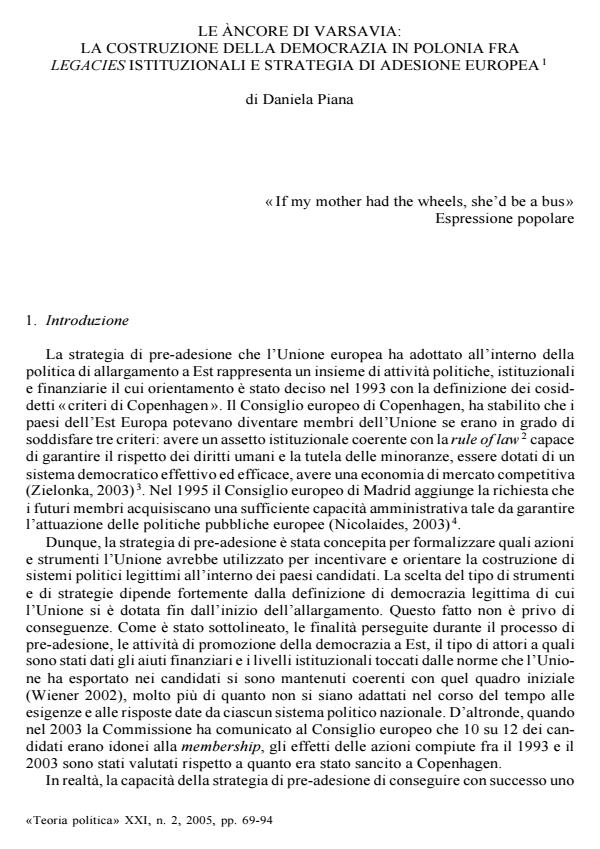Poland and the European Union: an institutional approach to a democratic question
Journal title TEORIA POLITICA
Author/s Daniela Piana
Publishing Year 2005 Issue 2005/2
Language Italian Pages 26 P. File size 76 KB
DOI
DOI is like a bar code for intellectual property: to have more infomation
click here
Below, you can see the article first page
If you want to buy this article in PDF format, you can do it, following the instructions to buy download credits

FrancoAngeli is member of Publishers International Linking Association, Inc (PILA), a not-for-profit association which run the CrossRef service enabling links to and from online scholarly content.
The pre-accession strategy used by the European Union to influence and lead Poland toward membership is assessed from the point of view of the political legitimacy created in the Polish democracy. The institutional and legal changes entailed by the process of adaptation of Poland to the criteria defining a democracy that is allowed to join the EU seem to have curtailed the capacity of political authorities to be accountable to their citizens, since they have been obliged or oriented to be accountable first to the Union. While Poland is formally a constitutional democracy with legal and institutional systems perfectly coherent with liberal values and constitutional principles, it comes out that the exercise of political power to shape and reshape the rules within the socioeconomic system limit and weaken the capacity of the regime to reach a high level of legitimacy. People do not trust political authorities neither they think that political decisions are responsive to them. These effects can be accounted for through an institutionalist approach, adopting the hypothesis that a negative correlation does exist between the increase of monitoring costs and participation costs and the increase of the legitimacy of democratic rules, which is confirmed in the case of Poland.
Daniela Piana, Le àncore di Varsavia: la costruzione della democrazia in Polonia fra legacies istituzionali e strategia di adesione europea in "TEORIA POLITICA" 2/2005, pp , DOI: